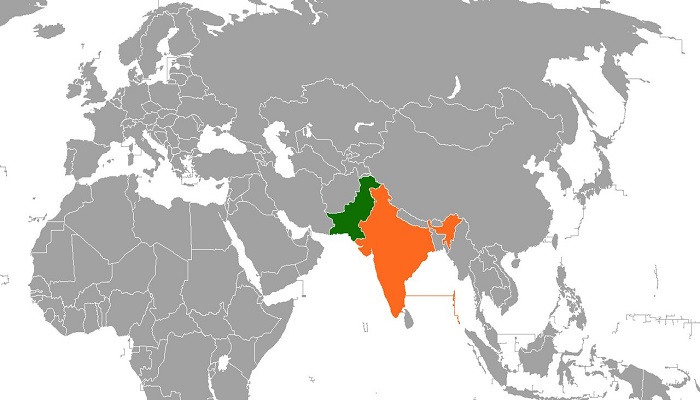PNN – While India has given its armed forces full authority to respond to the Pahalgam attack, and the Pakistani army has also announced its readiness to respond to any military adventure, Pakistani media has claimed a relative reduction in tensions between the two neighbors, while at the same time expressing concern about any unpredictable situation.
According to the report of Pakistan News Network, Pakistani media today reported the gradual disappearance of the shadow of war between the two nuclear-armed neighbors, while covering news related to the country’s large-scale military exercises and describing the latest positions of the leaders of the government and armed forces, stating that Pakistan is fully prepared to respond to any military adventure by India. However, the fragile situation continues.
Geo News Pakistan claims that after the US Secretary of State’s contact with the Pakistani Prime Minister and then the Indian Foreign Minister, it seems that the dust of war is clearing to some extent, but the situation will remain fragile.
The report states: Of course, there is a fear that an unexpected event could occur between the two countries, such as India’s plan to attack, although this would be a miscalculation by the eastern neighbor, as Pakistan remains on high alert.
In his latest statements in response to the Pahalgam attack, Pakistan’s Defense Minister has proposed the formation of an independent commission of inquiry by the United Nations.
Meanwhile, Indian Prime Minister Narendra Modi announced that the country’s armed forces have full operational authority to respond to the Pahalgam attack. India’s foreign minister has also demanded that the perpetrators of the attack be brought to justice.
Tensions between the two nuclear-armed neighbors on the subcontinent have escalated after an attack on tourists in India’s Pahalgam region on Tuesday, with Indians accusing their western neighbor Pakistan of being involved in the incident.
Pakistani officials have been in contact with a number of high-ranking officials from regional and international countries in recent days and have proposed a transparent and impartial investigation to clarify the facts surrounding the recent attack in India.
Pakistani Prime Minister Shahbaz Sharif has held telephone conversations with Dr. Masoud Pezishkiyan, President of the Islamic Republic of Iran, the Emir of Qatar, the Secretary-General of the United Nations, and the US Secretary of State in this regard.
In addition to talking with Iranian Foreign Minister Seyyed Abbas Araqchi, the Pakistani Foreign Minister also contacted a number of his counterparts in the region and Western countries.
Coinciding with the Pakistani army’s major military exercise, the country’s foreign minister and army spokesman warned during a joint press conference in Islamabad that any conflict with India would have dangerous consequences for regional peace and stability and international security.
Earlier, in separate telephone conversations with the Pakistani Prime Minister and the Indian Foreign Minister, the US Secretary of State called for a de-escalation of tensions between the two countries and direct cooperation between Islamabad and New Delhi to manage the crisis in South Asia.
The Pakistani Prime Minister has also called for Washington to pressure New Delhi in return.
In an interview with Fox News, US Vice President JD Vance addressed the recent tensions between New Delhi and Islamabad and expressed hope that these tensions would not escalate into a widespread regional war.
He added: We hope that India’s response to the terrorist attack in Kashmir will be in a way that does not lead to a widespread regional war.
Gunmen opened fire on a group of tourists in the tourist area of Palgham, about 90 kilometers from Srinagar in Indian Kashmir, killing at least 26 people on Tuesday. Indian officials described the incident as a terrorist attack and alleged Pakistani involvement in the attack. Islamabad denied the accusation.

